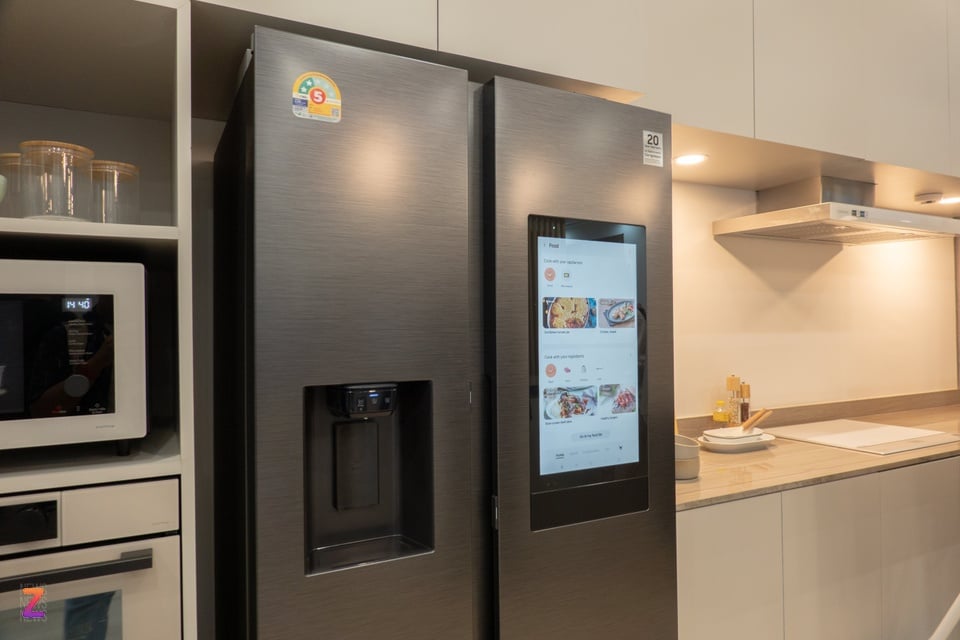 |
Samsung Bespoke AI Side-by-Side Refrigerator with 32-inch Touchscreen. |
Nearly 10 years after bringing Android tablets to smart refrigerators, Samsung is back with the idea of integrating screens into many popular electronic devices.
Samsung announced its Screens Everywhere strategy earlier this year. The 7- and 9-inch touchscreens, dubbed “AI Home,” will be where users interact with home appliances from washers and dryers to refrigerators.
In the context of AI and smart electronic devices becoming more popular, the strategy of leveraging touch screens can bring competitive advantages to Samsung, but there are still many questions surrounding its sustainability and usefulness in the long term.
Strategy towards the future
The AI Home screen not only controls the product but also integrates with the SmartThings smart home platform, tracks information, syncs calendars, listens to music, and even answers and finds phones. In other words, these are Android tablets located on the door of the refrigerator, washing machine...
With Bixby assistant, users can ask to check information, control devices by voice, such as giving commands to open the refrigerator door, adjust the washing mode.
According to research firm TraQline , Samsung leads the US home appliance market in 2023 with a market share of 20.9%. The South Korean company also ranks first in terms of brands that consumers consider when buying home appliances, reaching 32%.
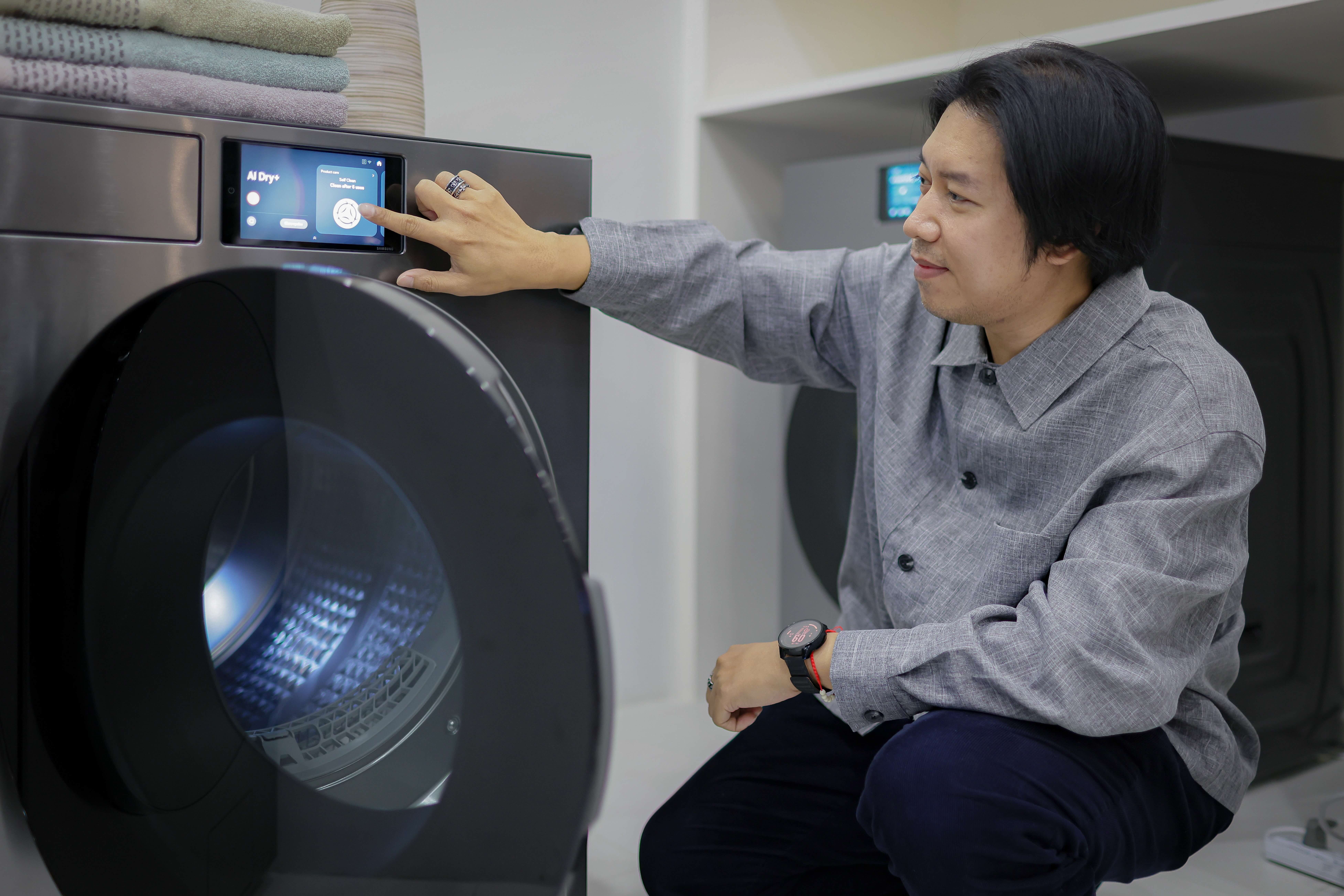 |
Touch screen on Samsung dryer line. Photo: Samsung . |
Despite being number one in an important market, Samsung is still open to new features and technology trends, instead of choosing the safe path. Responding to Tri Thuc - Znews , Mr. Mohit Agrawal, Research Director at Counterpoint Research , said that the approach of combining AI and Screens Everywhere is no exception.
“Samsung’s strategy is not just about maintaining current market share, but also shaping the future. It leverages the company’s vast ecosystem to deliver seamless, cross-device AI experiences that other brands have a hard time matching at this point,” Agrawal emphasized.
AI works seamlessly and connectedly
In an interview with CNBC in January, Jong-Hee Han, CEO of Samsung Electronics, said the global consumer electronics market (including smartphones, TVs and home appliances) is expected to grow 3% by 2025. The Korean company alone is targeting higher growth, with AI as one of the factors it expects to drive growth.
After the success of AI on the Galaxy smartphone line, Samsung continues to promote this technology on many electronic devices. Since last year, the company has integrated AI into a number of products, focusing on connectivity and optimizing operations. This year, Samsung continues to promote the technology on the Bespoke AI line, spanning many products.
According to analysts, Samsung is leveraging its existing strengths with AI technology, integrating it into many popular devices. This helps the company maintain its market leadership position instead of just focusing on competing with rivals.
“In a multi-device world , no brand is better positioned to deliver a consistent user experience. Samsung is preparing for the future with AI agents that work seamlessly across devices,” said analyst Mohit Agrawal.
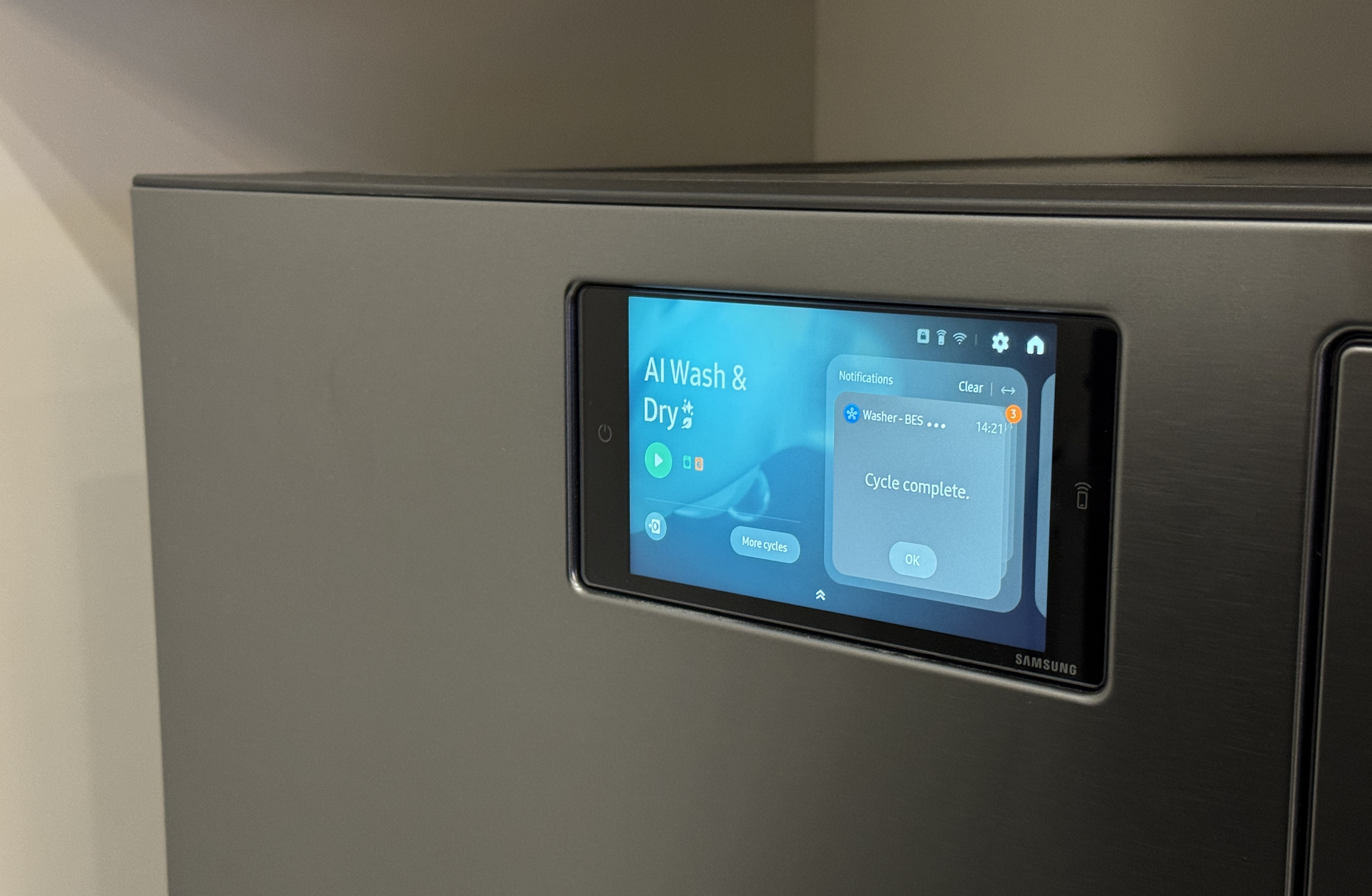 |
The touch screen on the device supports control, status updates and parameters during operation. |
For example, the Bespoke AI Side-by-Side refrigerator features a 9-inch AI Home screen that supports ingredient recognition and recipe creation, and adjusts compressor speed to save energy through AI Energy Mode.
Next, the Bespoke AI Top Load Washer supports fabric type and load recognition, thereby adjusting the washing speed and time. The AI algorithm also supports energy optimization thanks to AI Energy Mode, floor surface recognition to adjust spin speed, and reduces washing machine vibration with AI VRT+.
Similarly, the Bespoke AI Jet Ultra handheld vacuum cleaner supports AI Cleaning Mode 2.0, which uses sensors and algorithms to identify materials and surface conditions to adjust suction power, even recognizing clear liquids to ignore while vacuuming.
Samsung's calculations
Although new and smart, it still needs more time to prove its true value when Samsung simultaneously integrates AI and touch screens into home appliances.
In an interview with The Verge , a Samsung representative said that integrating screens into all devices aims to "increase efficiency in household tasks, making it easier to use features on the device intuitively and easily accessible."
For example, the 32-inch Family Hub refrigerator supports AI Vision Inside, allowing you to check the status of the food inside, suggest recipes, and transmit them to the oven. Similarly, the display on the washing machine provides information about water, detergent, and energy consumption.
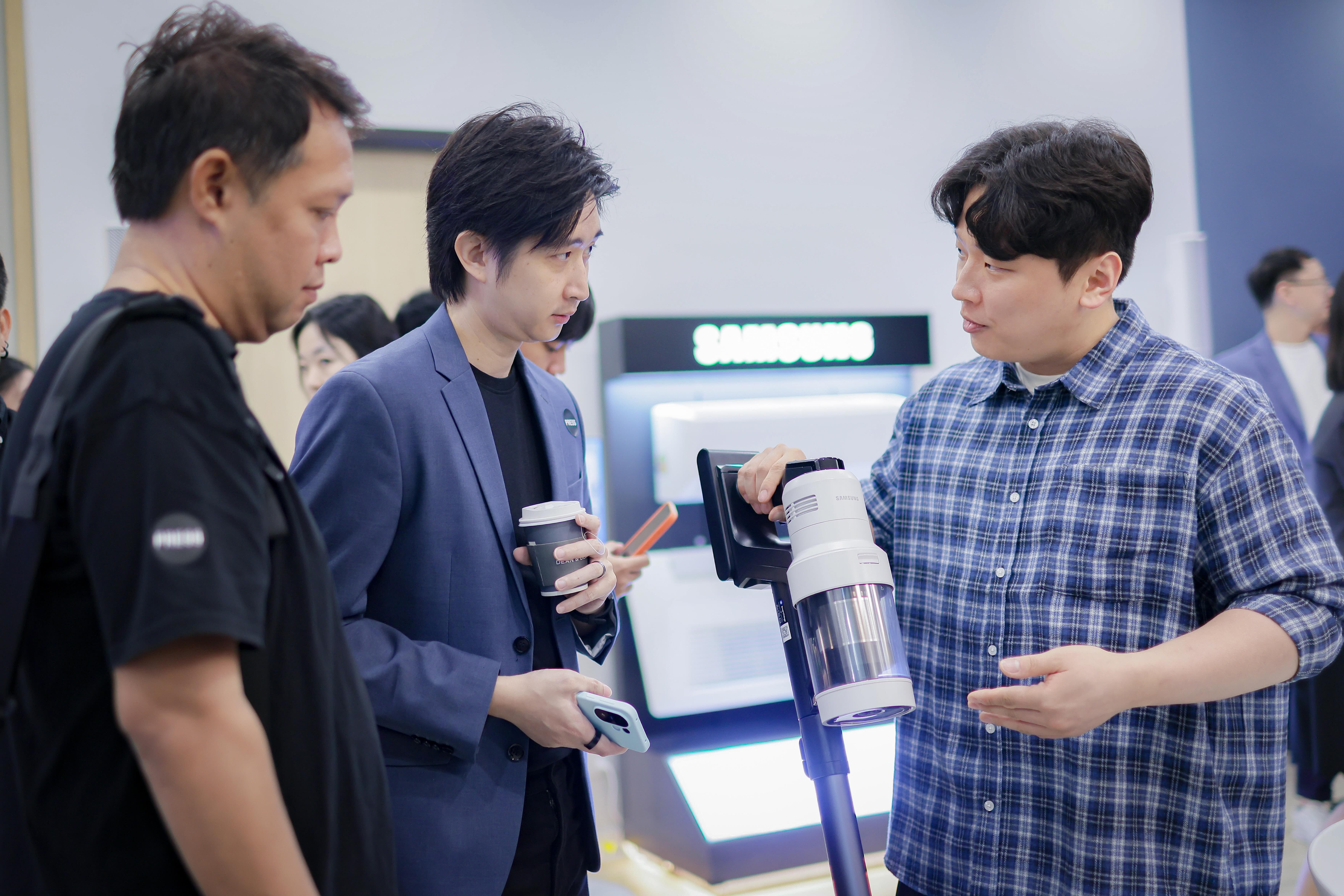 |
A Samsung handheld vacuum cleaner model, powered by AI to automatically change suction power. Photo: Samsung . |
Devices also connect to each other, supporting control via the SmartThings platform. For example, users can turn on the lights in the bedroom with the washing machine, find the phone on the refrigerator... instead of carrying the phone everywhere or relying on voice.
Durability is also a factor worth considering, especially when many families still tend to use washing machines and refrigerators for 5 years or more. Although it is not possible to confirm the specific lifespan, analyst Mohit Agrawal said that this is a way for Samsung to strengthen its image and attract users.
“These features help reinforce Samsung’s image as a market leader in technology, while also attracting high-end users who want to make their homes smarter and more connected.
“In a context where smart features are quickly becoming the norm, being the first to adopt still has strategic value,” a representative from Counterpoint Research told Tri Thuc – Znews .
Source: https://znews.vn/dua-ai-len-tu-lanh-va-may-giat-samsung-tinh-toan-gi-post1563893.html






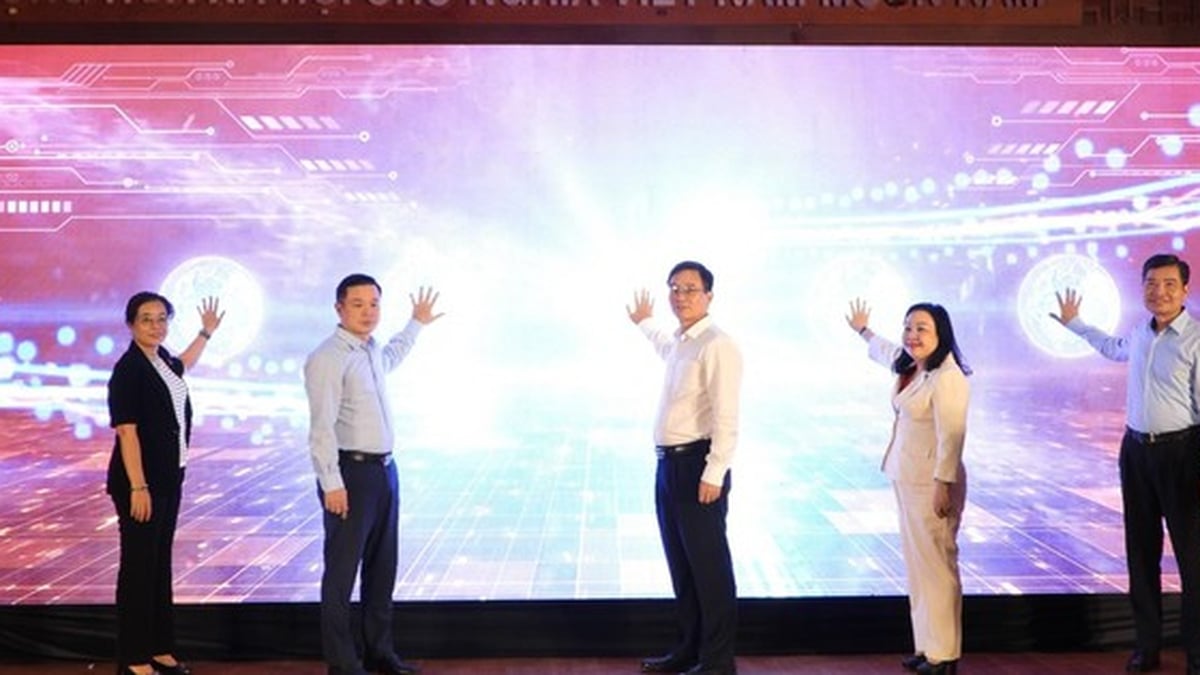
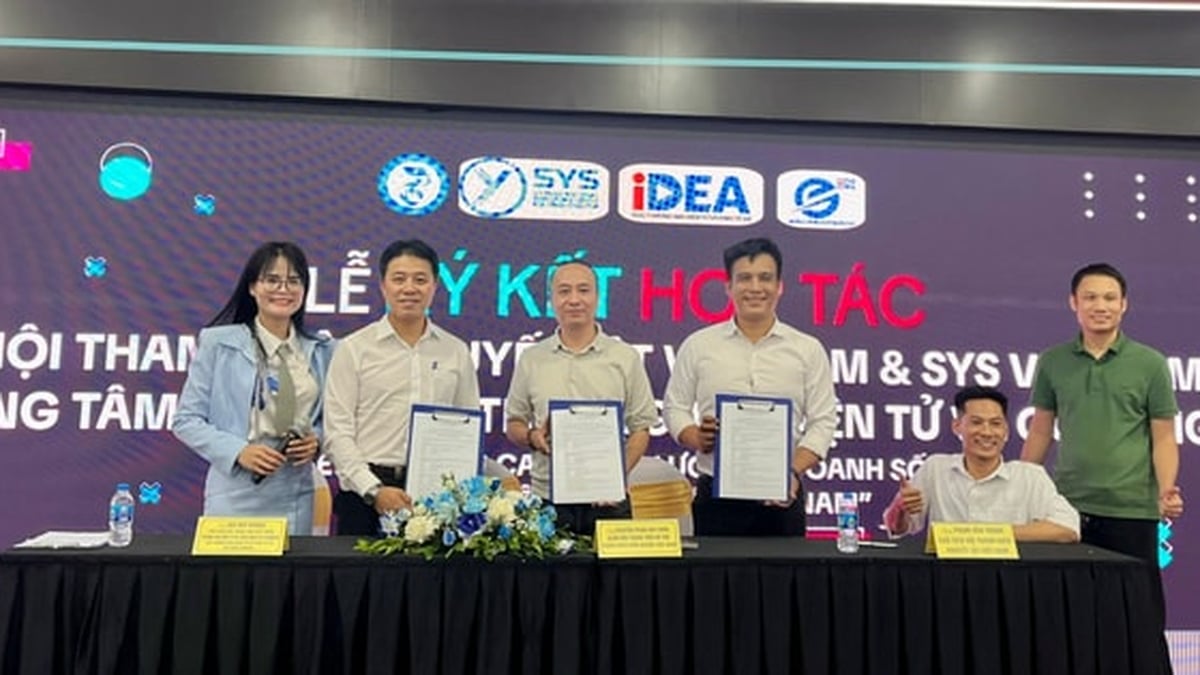


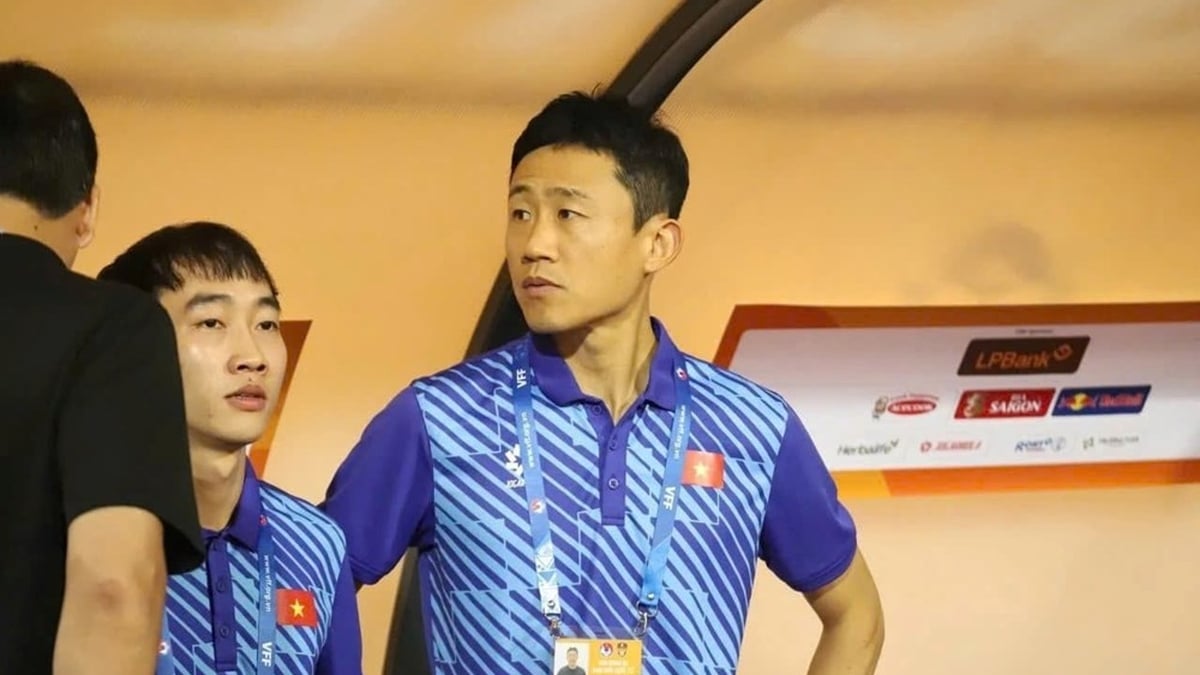













![[Photo] Gia Lai provincial leaders offer flowers at Uncle Ho's Monument with the ethnic groups of the Central Highlands](https://vphoto.vietnam.vn/thumb/1200x675/vietnam/resource/IMAGE/2025/7/9/196438801da24b3cb6158d0501984818)


































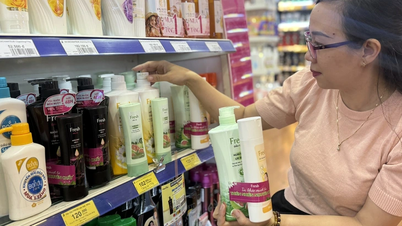









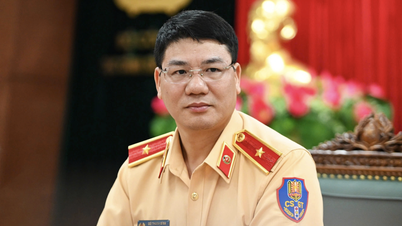




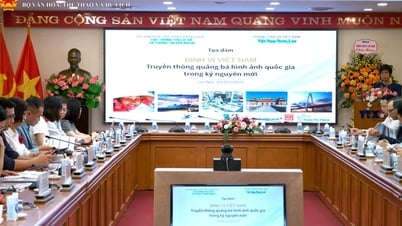



























Comment (0)